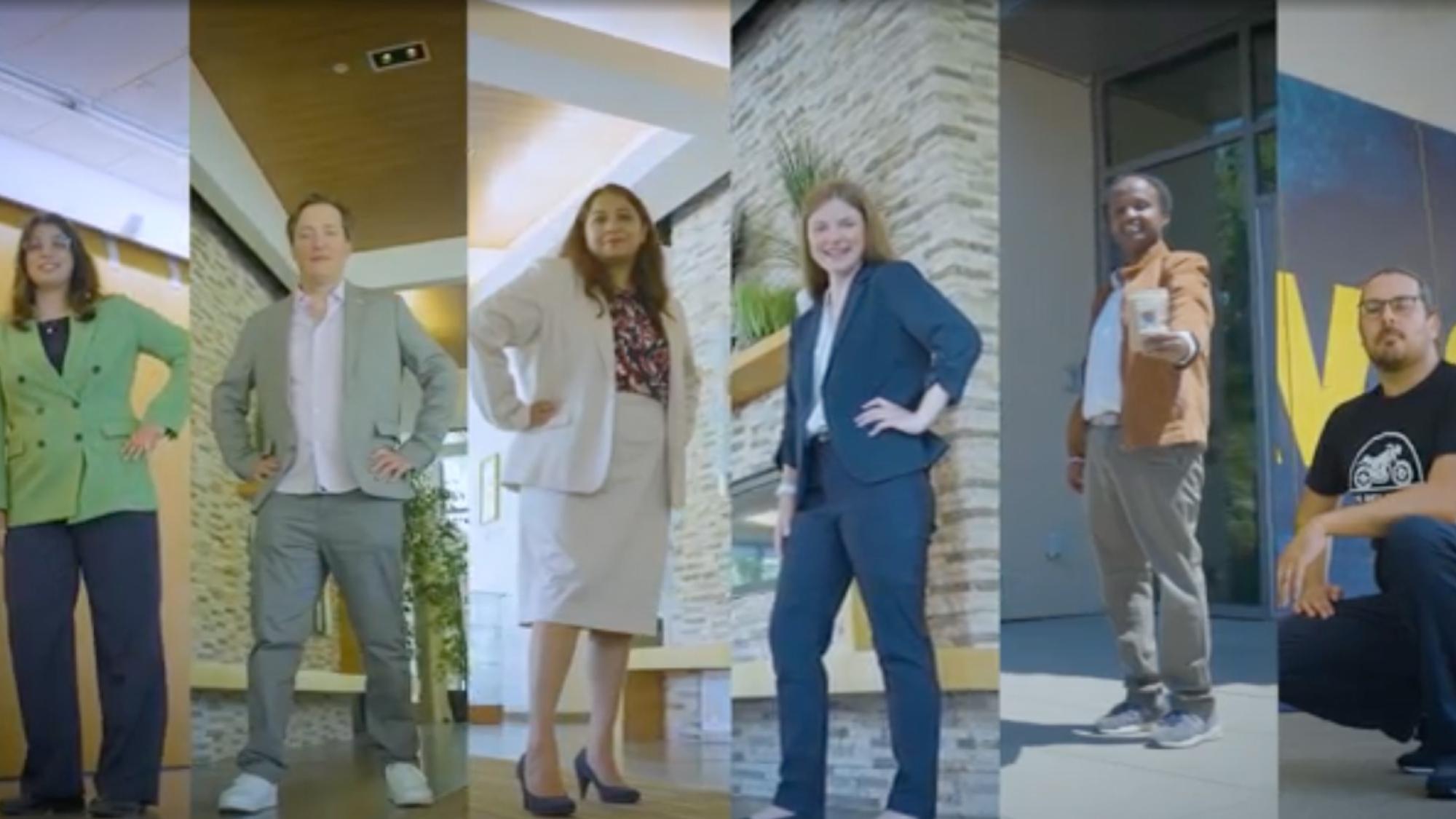Benjamin Wang ’06, a medical doctor, brought his life-saving innovation to the UC Davis Big Bang! Business Competition in 2014. His team won first place — and Wang credited the experience with helping him launch the venture.
After witnessing a patient die from an antibiotic-resistant infection, he developed NEVAP — a breathing tube designed to prevent bacterial infections in ventilated patients.
"Winning the competition helped to validate the idea that creating a better breathing tube was possible and viable as a business," Wang said.
This year marks the 25th anniversary of the Big Bang! at UC Davis. With more than $100,000 awarded annually and thousands of competitors over its lifetime, the Big Bang! fuels a vibrant ecosystem of innovation and entrepreneurship across fields spanning health, food, agriculture and other industries. Contestants over the years have crafted grain-based foods incorporating spent beer brewery grains, created methods to warn epilepsy patients about seizures, and designed apps and medical devices that monitor and treat a variety of health issues for humans and animals, to name a few examples.
Organized by the UC Davis Mike and Renée Child Institute for Innovation and Entrepreneurship, the competition is open to any team with a founder based at a California institution of higher education. Teams come from around the state and the country to compete.
Launching real-world ventures
The competition has become a launchpad for future success, with participants going on to build companies, pursue careers in industry, and explore academic research. Part of the mission includes equipping them with essential business skills in innovation, communication and strategic thinking. Through hands-on workshops, mentorship and targeted feedback, participants learn how to turn ideas into action, navigate uncertainty and collaborate across disciplines.
Indeed, Josh Schein, CEO of Global Key Advisors in San Francisco, has volunteered as a judge for six years because, he said, he believes in the competition’s educational mission.
“When teams encounter someone asking questions about their market research, they learn from that,” he said. “There is no substitute for someone poking holes in your business idea, or really, just pointing out what investors are going to ask.”
Added Joe DiNunzio, executive director at the Institute for Innovation and Entrepreneurship, “While it is fantastic to be able to award meaningful financial grants to the winning teams, the Big Bang!'s greatest impact is enabling all of the participating teams to build the skillset and toolset needed to develop and move forward with an entrepreneurial initiative.”
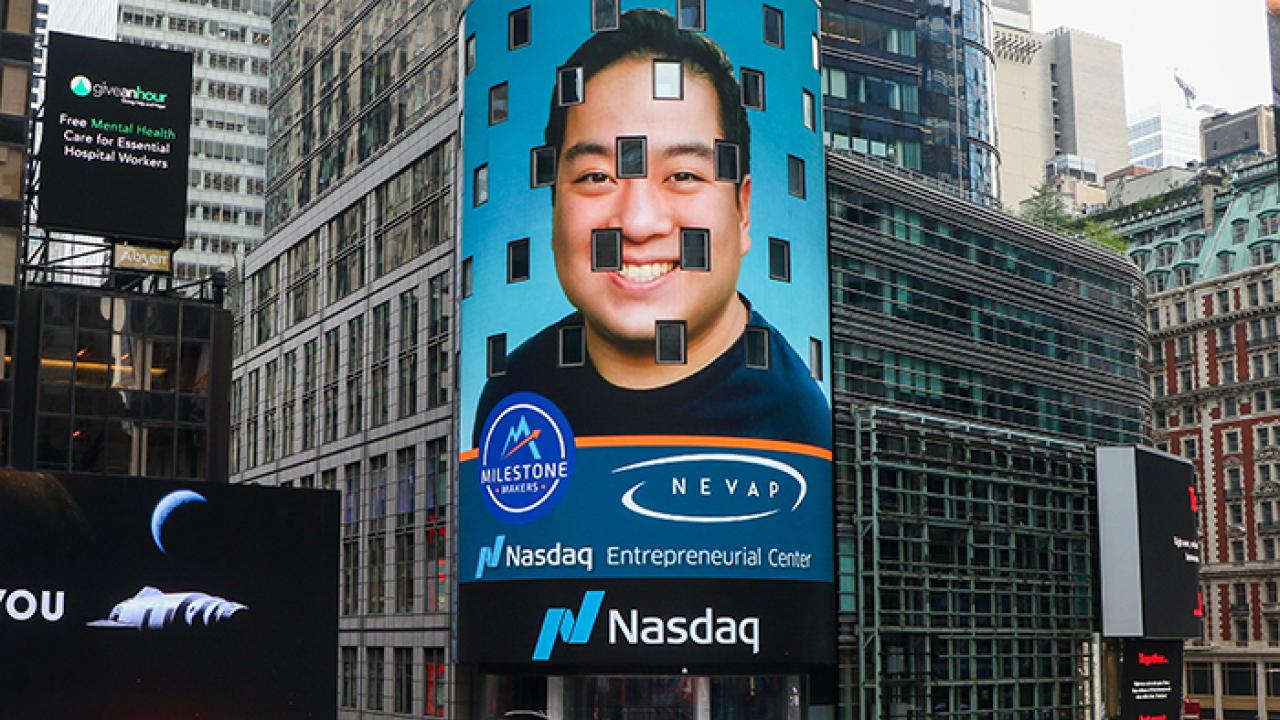
Mentoring the next generation of entrepreneurs
Since 2014, Wang’s NEVAP has commercialized four airway-management devices, which have been sold in over 25 countries. He also donated thousands of devices to under-resourced areas during the COVID-19 pandemic.
Wang has actively given back to the Big Bang! since he competed. “Staying involved as a mentor and judge helps me stay connected with the Big Bang! community, and it also aligns with my own values,” he said. “It is extraordinarily meaningful to help people who are trying to make the world better, and I believe it is also a scale impact.”
For Denise Bronner, the Big Bang! was a turning point. In 2018, she won the Social Entrepreneurship Award for Anu Snacks, a venture that incorporated spent grains from small breweries into low-fat, low-sugar snack bars. Although she ultimately took her career in a different direction, Bronner credited the Big Bang! experience with shaping her commitment to health equity.
After the competition, Bronner entered the consulting world, working with top-20 pharmaceutical companies before joining Johnson & Johnson, where she led feasibility and DEI strategies. In 2024, she founded Empactful Ventures, a boutique consulting firm focused on advancing health equity in the healthcare industry.
Seven years later, Bronner returned to the Big Bang! — this time as a sponsor. In 2025, she funded the $12,500 Social Entrepreneurship Award with the hope of challenging assumptions about the field. “The idea that social entrepreneurship can’t be profitable is a barrier to innovation,” she said. “These businesses fill essential societal gaps.”
Bronner said the Big Bang! also provided her with a lasting support network. “My fondest memory from the competition was the camaraderie among the finalists.” Bronner said the teams cheered for each other despite being competitors and have remained in contact to support one another.

Creating a seizure alert system
For many participants, the Big Bang! is the catalyst they need to get their venture off the ground. For UC Davis undergraduates Jaya Athuluru and Simran Lallian, the Big Bang! marked the beginning of their entrepreneurial experience. Their venture, EpiSense, won the $25,000 grand prize in 2024.
A wearable electroencephalogram headband paired with a mobile app, EpiSense aims to give people with epilepsy advance warning of seizures, helping them avoid injuries like head trauma and choking.
Their Big Bang! win provided not only funding but also validation and visibility. In the months following the competition, EpiSense captured another $10,000 by winning the Sacramento Kings Capitalize Competition. The team also joined the UC Davis Venture Catalyst BioInnovation Gallery Program, an experience that culminated in the team presenting at the JP Morgan Healthcare Conference, one of the industry’s most prestigious events.
EpiSense also completed the Startup Legal Garage and Regional I-Corps programs, gaining critical support in legal structuring and market validation. With several new undergraduate members on board, the EpiSense team is now refining its wearable headband for better comfort and signal quality, while also enhancing its machine learning model to account for how epilepsy varies across patients.
“The Big Bang! played a critical role in supporting EpiSense’s journey,” said Lallian. “From the mentors we met in workshops to the high-stakes presentation and the funding we were able to earn, the journey of the competition was a fantastic learning opportunity.”
Supporting caregivers through tech, community
For Nishi Bhagat ’24, the Big Bang! was a launchpad for personal and professional growth. Bhagat entered the competition in 2023 with a vision to support long-term caregivers through technology and community. She and her team created Caregiva, an app designed to connect caregivers with resources and peer support. Caregiva won the Social Entrepreneurship Award, an experience Bhagat described as transformational.
Bhagat’s journey through the Big Bang! connected her to a business community and helped her transform her idea into a viable venture. “It gave me access to experienced mentors, hands-on workshops and a community of like-minded innovators,” she said. “It was a platform where I learned to articulate ideas, validate solutions and turn concepts into actionable strategies.
“The Big Bang! is more than a competition — it’s a unique learning experience that pushes innovators to think creatively and grow,” Bhagat continued. “The skills and relationships competitors develop will stay with them long after the competition ends.”
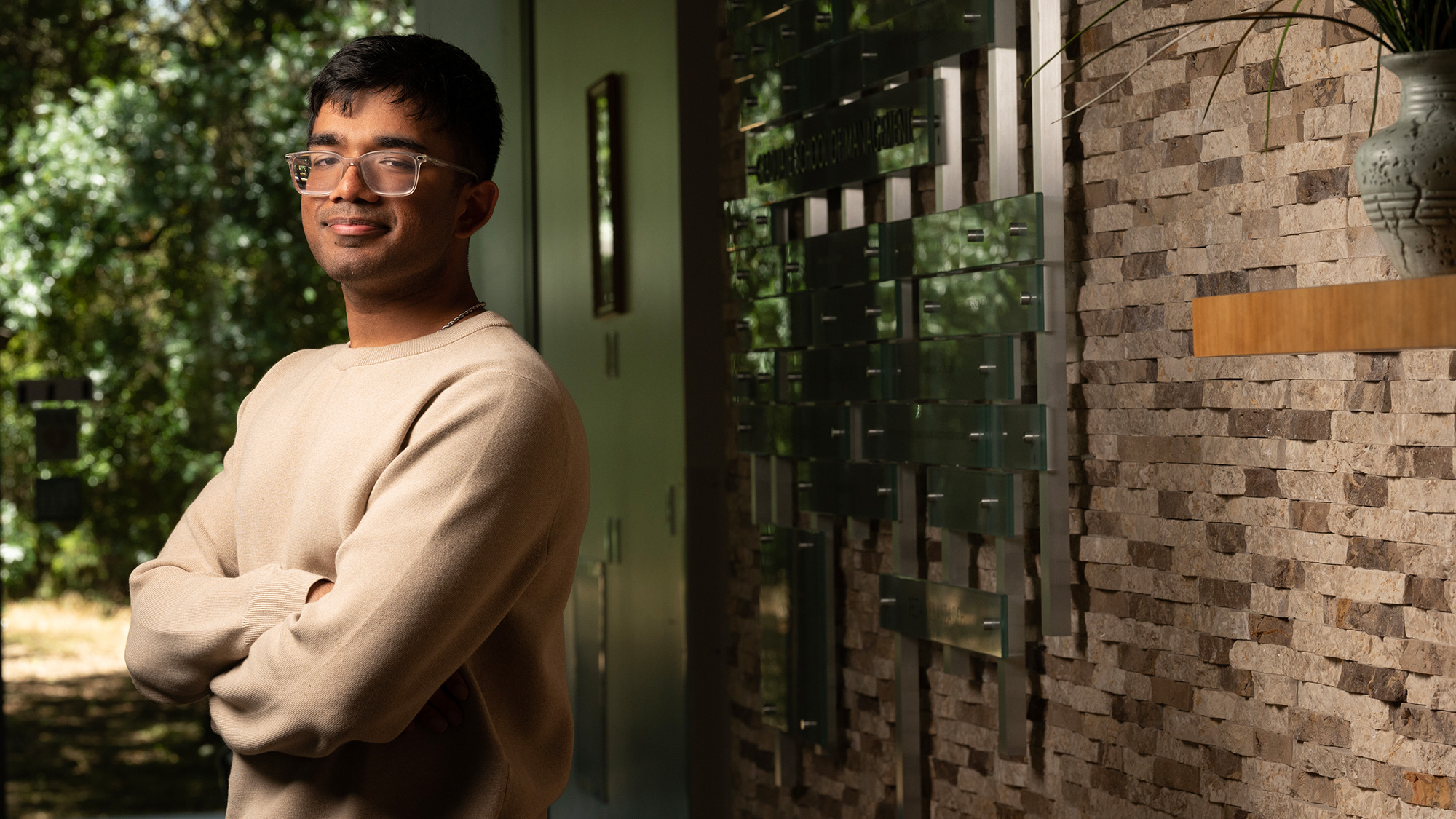
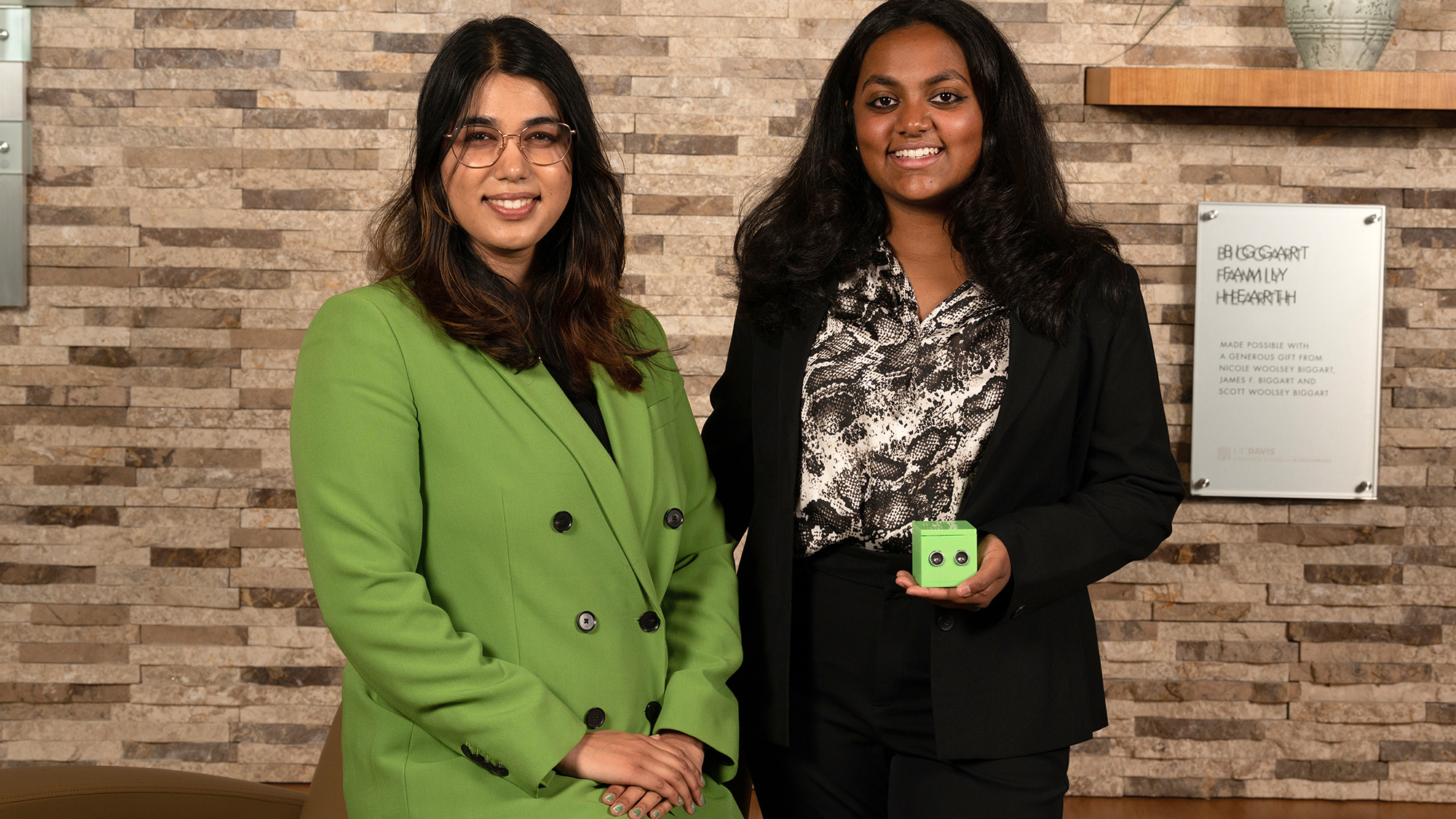
Tracking herd health with biosensors
This year was no different. On May 20, new teams came together to pitch and present their innovations.
A team of undergraduate students from California Institute of Technology won the $25,000 first prize for an innovation that provides real-time data on livestock health, helping farmers prevent costly disease outbreaks. Pasadena-based Nexa Labs has developed a subcutaneous biosensor that monitors herd health by tracking heart rate, respiration rate, blood oxygen and temperature. Farmers receive continuous data, including alerts for any potential disease outbreaks.
“This is an incredibly important issue because, worldwide, farmers lose more than $350 billion annually to livestock health issues,” said Zarif Azher, co-founder and CEO of Nexa Labs and Caltech undergraduate bioengineering major. “In the U.S., 70% to 90% of farms currently monitor their cattle health through manual inspection. This subjective process cannot catch health issues until they have already started spreading through a herd, causing massive losses.”
Making STEM accessible with robotics
The Education and Educational Tools sector award — and $12,500 — went to Davis-based The Make Box, the product of team founder Kavya Khare’s passion for hands-on STEM learning that began during her middle school years. Khare, a UC Davis electrical engineering major, saw the same excitement at STEM summer camps, when students were able to explore and build. She realized that most children lack access to accessible, creative and engaging STEM tools, especially when they don’t see themselves represented in traditional STEM pathways.
The Make Box team developed their flagship product, SnapBots, as a modular robotics kit that includes programmable cubes with different functions, such as light sensing and sound activation that snap together with magnetic connectors. Children can follow instructions to build standard bots, such as an alarm bot, or they can invent new creations with the drag-and-drop coding interface.
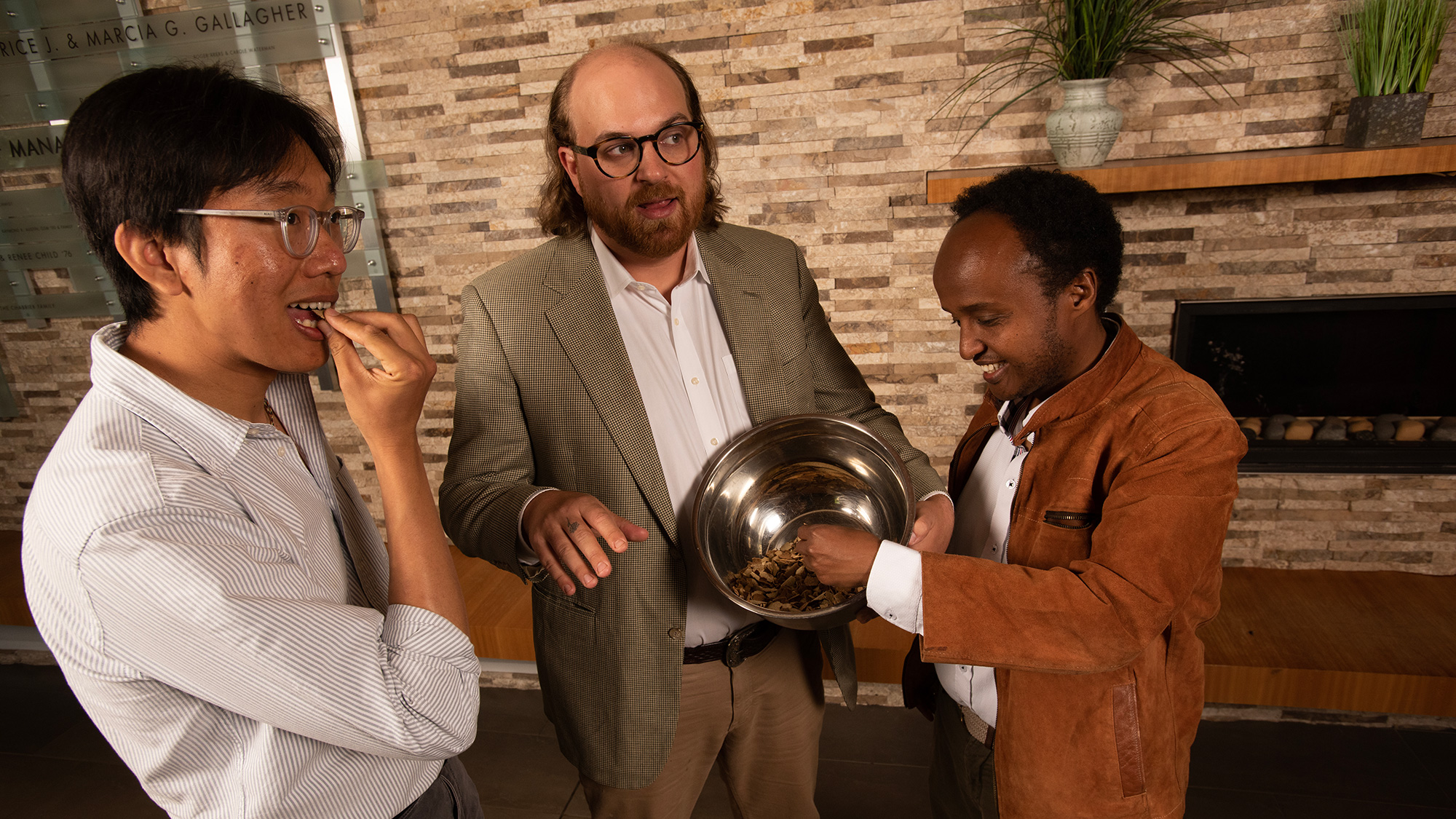
Using ancient grain to fight prediabetes
UC Davis Ph.D. student Ali Said Yusuf and his team took the $12,500 Food and Agriculture sector award for a product that has helped him in his own life. Yusuf was diagnosed with prediabetes in 2023, joining 100 million Americans with the condition. He needed to increase the fiber in his diet to control blood sugar spikes, so he developed a breakfast cereal made from teff, an ancient grain from East Africa. Yusuf co-founded Davis-based Teflishe Foods.
“I began eating teff porridge every morning, which kept me full for hours,” Yusuf said. “Within a year, I reversed my prediabetes, lost over 30 pounds and regained control of my health.”
Now, he said the goal is to provide a natural, delicious and culturally rooted way to improve fiber intake and support the prevention and management of prediabetes, diabetes and related health conditions.
Media Resources
Media contacts
- Angela Lindley, communications and marketing, Mike and Renée Child Institute for Innovation and Entrepreneurship, alindley@ucdavis.edu
- Karen Nikos-Rose, News and Media Relations, kmnikos@ucdavis.edu
